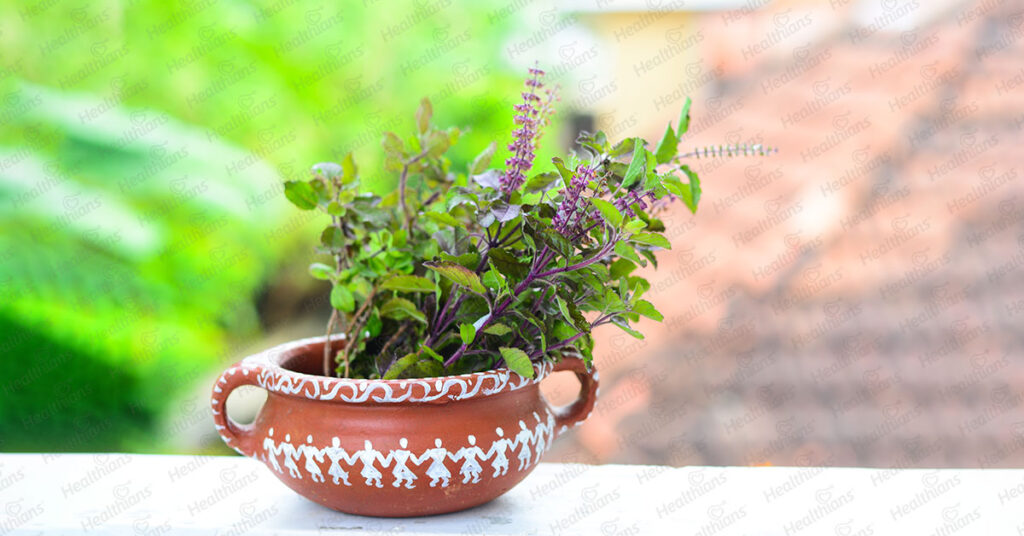Introduction
Tulsi, also known as Holy Basil, is a magical herb that has been used in traditional medicine for thousands of years. This aromatic plant is native to India, where it is considered a sacred herb and is widely used in Ayurvedic medicine. Holy basil has been used to treat a wide range of health conditions, from respiratory problems and skin disorders to digestive issues and mental health disorders.
Its healing properties are attributed to its rich phytochemical content, which includes essential oils, flavonoids, and tannins. In recent years, modern science has begun to uncover the many health benefits of Tulsi, and it is now gaining popularity around the world as a natural remedy for a variety of ailments.
In this article, we will explore the many health benefits of Tulsi and how this magical herb can improve your health and well-being.
Nutritional value of Tulsi
Here are the approximate nutritional values of 100 grams of fresh holy basil leaves:
- Calories: 23
- Carbohydrates: 2.65 grams
- Protein: 3.15 grams
- Fat: 0.6 grams
- Fibre: 1.6 grams
- Vitamin A: 5275 IU
- Vitamin C: 18 mg
- Calcium: 177 mg
- Iron: 3.17 mg
- Magnesium: 64 mg
- Potassium: 295 mg
Tulsi is also rich in vitamins and minerals, including vitamin A, vitamin C, calcium, iron, and zinc. Additionally, Tulsi contains a variety of antioxidants, including eugenol, rosmarinic acid, and apigenin, which help to protect against cellular damage and oxidative stress.
Ayurvedic health benefits of Tulsi
Holy Basil, is considered a sacred herb in Ayurvedic medicine, where it has been used for thousands of years to treat a variety of health conditions. Here are some of the Ayurvedic health benefits of holy basil:
- Supports the immune system: Tulsi is known to have strong immune-boosting properties that help to protect the body against infections and diseases. It is also believed to enhance the production of immune cells, such as T-cells and natural killer cells, which play a vital role in fighting off pathogens.
- Reduces stress and anxiety: Holy basil is considered an adaptogen in Ayurveda, which means it helps the body to adapt to stress and promotes overall well-being. It is believed to reduce stress and anxiety by balancing cortisol levels in the body and promoting relaxation.
- Supports respiratory health: Tulsi is known to have anti-inflammatory and expectorant properties, which help to reduce inflammation and mucus in the respiratory system. It is also believed to help relieve symptoms of asthma, bronchitis, and other respiratory disorders.
- Improves digestion: Tulsi is known to stimulate digestive enzymes and improve digestion, making it useful in treating digestive disorders such as bloating, constipation, and flatulence.
- Promotes healthy skin: Tulsi is rich in antioxidants, which help to protect against cellular damage and oxidative stress. It is also believed to have anti-inflammatory and antibacterial properties, which can help to treat acne, eczema, and other skin disorders.
How to use Tulsi in your routine
Here are some easy ways to add Tulsi to your routine:
Tulsi tea: One of the easiest ways to enjoy the health benefits of Tulsi is by drinking Tulsi tea. Simply steep a few Tulsi leaves in hot water for 5-10 minutes, strain and drink. You can add honey or lemon for added flavour.
Tulsi-infused water: Add a few leaves to your water bottle for a refreshing and healthy drink. This is a great way to stay hydrated and get benefits throughout the day.
Tulsi pesto: Make a delicious and nutritious pesto by blending its leaves, garlic, olive oil, nuts, and parmesan cheese. Use this pesto as a topping for pasta, salads, or sandwiches.
Tulsi in soups and stews: Add Tulsi leaves to your favourite soups and stews for added flavour and nutrition. Holy basil pairs well with tomato-based soups, lentil soups, and vegetable stews.
Tulsi oil: Use Tulsi oil as a massage oil or in aromatherapy to promote relaxation and reduce stress. Simply mix a few drops of this oil with a carrier oil, such as coconut or almond oil, and apply it to the skin.
Incorporating it into your daily routine is easy and can provide a variety of health benefits. Try some of these simple ideas to start enjoying the benefits of this magical herb today.
Final thoughts
There is a long history of use in traditional medicine. It is rich in nutrients, antioxidants, and phytochemicals that provide a variety of health benefits, from boosting the immune system and reducing stress to improving respiratory health and promoting healthy skin. Tulsi is a versatile herb that can be easily incorporated into your daily life in a variety of ways. Whether you are looking to improve your overall health and well-being or treat specific health conditions. It is a natural and effective remedy to consider. So, try incorporating it into your daily routine and experience the many health benefits of this magical herb.
Tulsi is revered in Ayurvedic medicine for its many health benefits, including its ability to support the immune system, reduce stress and anxiety, improve respiratory health, promote healthy skin, and aid digestion. Its adaptogenic properties make it a valuable tool in supporting overall well-being and reducing the effects of stress on the body.
Overall, It is a magical herb with many health benefits that can improve your physical, mental, and emotional health. It’s no wonder why Tulsi is considered a sacred herb in many cultures and is gaining popularity around the world as a natural remedy for a variety of ailments.





